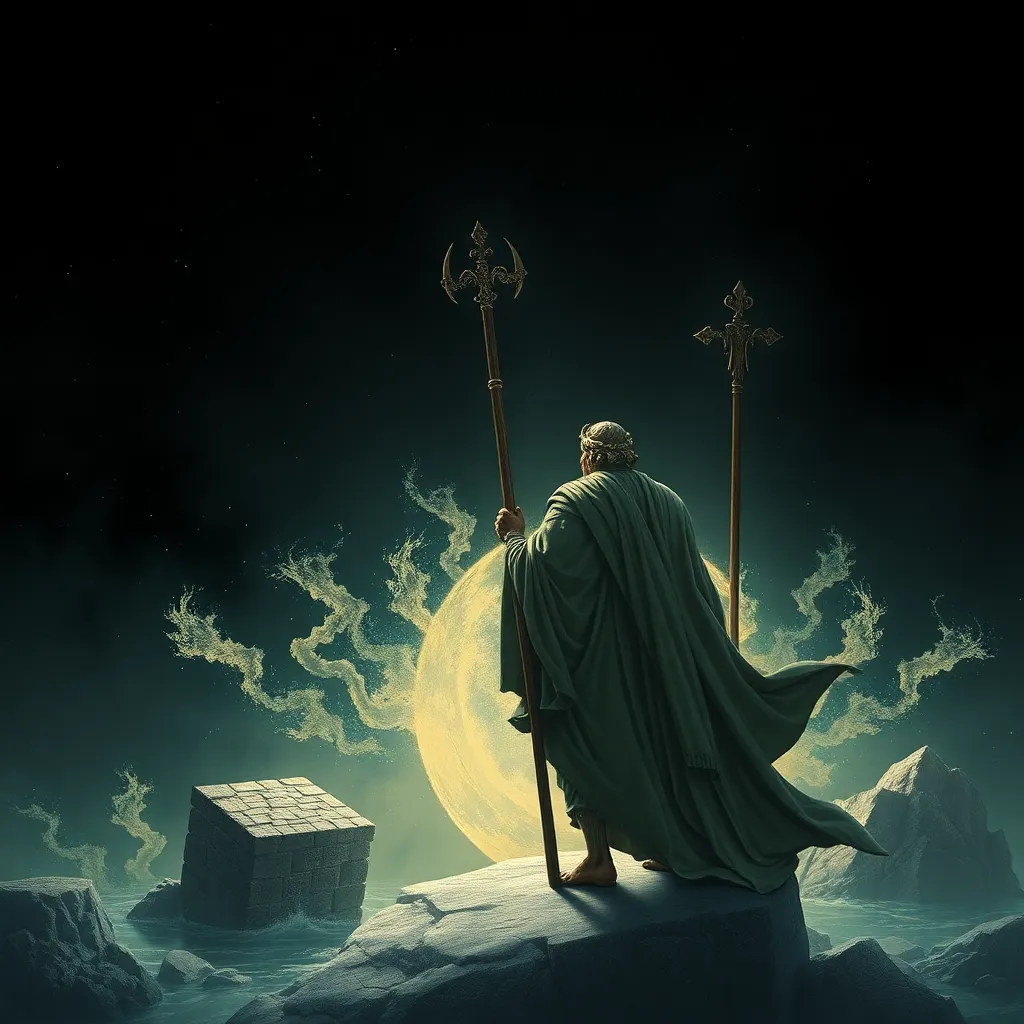The Role of Fate in The Odyssey: Are We Masters of Our Destiny?
I. Introduction
“The Odyssey,” attributed to the ancient Greek poet Homer, is one of the most significant works in Western literature. It narrates the adventurous journey of Odysseus as he strives to return home after the Trojan War. This epic poem not only tells a compelling story of heroism, adventure, and love but also delves deeply into the philosophical themes of fate and free will.
The tension between fate and free will is a central theme in “The Odyssey.” Throughout the narrative, characters often grapple with the predestined paths laid out for them by the gods and their own desires to shape their futures. This article explores how fate influences the destinies of characters in “The Odyssey” and examines the ongoing debate regarding human agency.
II. The Concept of Fate in Ancient Greek Culture
In ancient Greek culture, fate, or Moira, is a powerful and often unavoidable force that governs the lives of mortals and gods alike. Moira represents the predetermined course of events that each individual must follow, and it is often depicted as a web spun by the Fates—three sisters who control the destiny of every being.
The influence of the gods plays a significant role in determining fate. The gods are seen as powerful entities who can intervene in mortal lives, sometimes aligning with fate and other times challenging it. In various Greek tragedies and literary works, we see characters struggling against their fates, often leading to tragic outcomes.
- Oedipus Rex – Oedipus’s attempt to escape his fate leads him directly to it.
- Prometheus Bound – Prometheus’s defiance against Zeus illustrates the struggle between fate and free will.
III. Odysseus: The Hero Caught Between Fate and Free Will
Odysseus, the protagonist of “The Odyssey,” embodies the struggle between fate and free will. He is portrayed as a clever and resourceful hero, yet he is also subject to the whims of fate and the gods. Throughout his journey, Odysseus faces numerous challenges that test his strength and cunning.
Key moments in Odysseus’s journey highlight the role of fate:
- The prophecy of Tiresias, which foretells his long and arduous journey home.
- His encounter with the Cyclops, where his cunning leads both to his escape and to Poseidon’s wrath.
- The trials he faces upon returning to Ithaca, which are influenced by both his decisions and the will of the gods.
Odysseus’s decisions often reflect a conflict with fate. For instance, his choice to reveal his identity to the Cyclops ultimately brings about further suffering, demonstrating how his actions can align or conflict with the predetermined outcomes of his fate.
IV. The Role of the Gods in Shaping Destiny
The gods play a pivotal role in shaping the destinies of the characters in “The Odyssey.” Major deities, such as Athena and Poseidon, significantly influence Odysseus’s journey.
Athena, the goddess of wisdom, acts as a protector and guide for Odysseus. She intervenes multiple times to assist him:
- She aids him in his encounters with mythical creatures.
- She supports Telemachus in his quest to find his father.
In contrast, Poseidon, the god of the sea, embodies the forces of fate that oppose Odysseus. His anger at Odysseus for blinding his son, Polyphemus, leads to numerous obstacles on Odysseus’s journey home. This tension between divine will and human action is a recurring theme, illustrating how the gods can shape destiny while mortals strive for agency.
V. Other Characters and Their Relationship with Fate
Other characters in “The Odyssey” also grapple with fate in unique ways:
- Penelope: Odysseus’s wife, who displays unwavering loyalty as she waits for his return. Her fate is intertwined with Odysseus’s, and her cleverness in dealing with the suitors reflects her agency amid her predestined role.
- Telemachus: The son of Odysseus, who embarks on his journey of growth and self-discovery. His search for identity signifies a break from the constraints of fate, as he actively seeks to establish his own path.
- The Suitors: They embody hubris, believing they can usurp Odysseus’s place. Their fate is sealed by their arrogance, resulting in dire consequences when Odysseus returns.
VI. The Concept of Hubris and Its Impact on Destiny
Hubris, defined as excessive pride or self-confidence, plays a critical role in “The Odyssey.” Characters displaying hubris challenge fate, often leading to their downfall.
Case studies of hubris in “The Odyssey” include:
- Odysseus’s encounter with the Cyclops, where his pride leads him to reveal his name, bringing Poseidon’s wrath upon him.
- The suitors, who arrogantly court Penelope and disregard the possibility of Odysseus’s return, ultimately face death.
The consequences of hubris serve as a reminder of the limitations of human agency when faced with the forces of fate.
VII. The Philosophical Debate: Are We Masters of Our Destiny?
The philosophical debate surrounding fate versus free will has been discussed by ancient Greek philosophers such as Plato and Aristotle. They explored the nature of human agency and the extent to which individuals can shape their destinies.
Modern interpretations of this debate continue to resonate, as people ponder the balance between predetermined paths and personal choices. “The Odyssey” serves as a rich text for examining these philosophical questions, illustrating how characters navigate the complexities of fate and free will.
VIII. Conclusion
In conclusion, “The Odyssey” presents a nuanced exploration of fate and free will. Through the experiences of Odysseus and other characters, we observe the interplay between divine influence and human action. The themes of loyalty, hubris, and the quest for identity reflect the ongoing struggle between predestined paths and the desire for agency.
These themes remain relevant in contemporary life, prompting us to reflect on our own destinies and the forces that shape them. Ultimately, “The Odyssey” invites readers to consider the delicate balance between fate and human agency in the journey of life.




